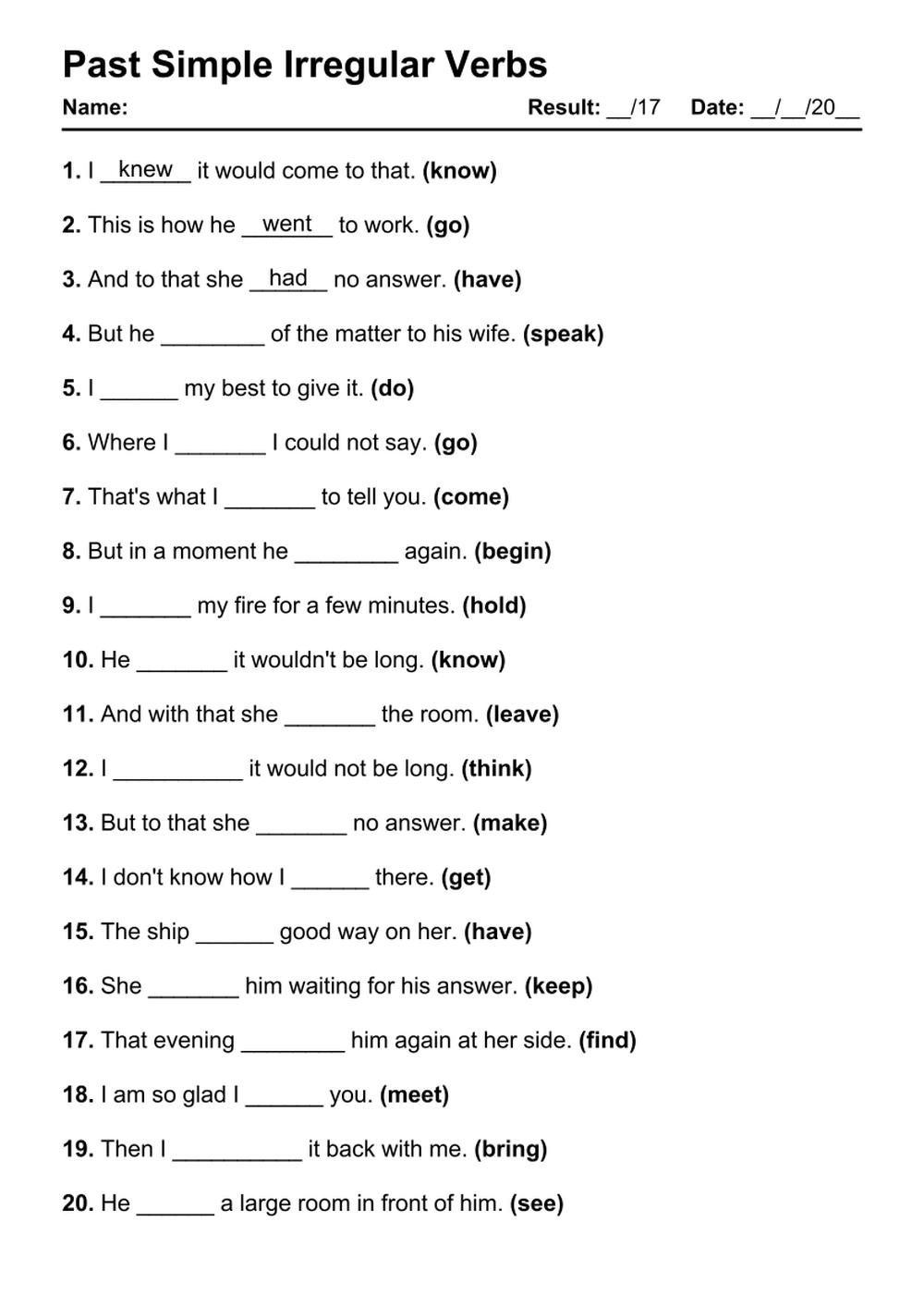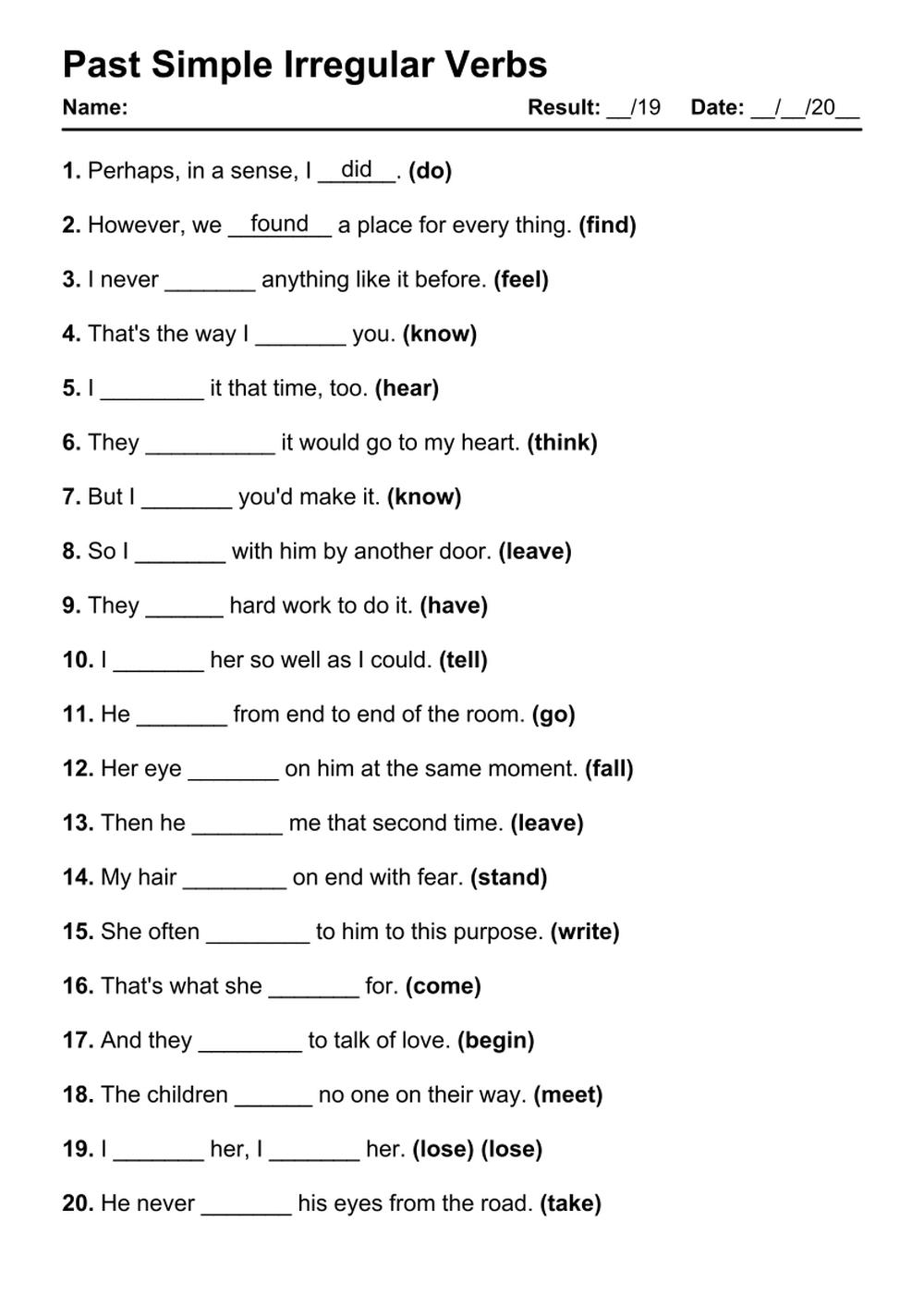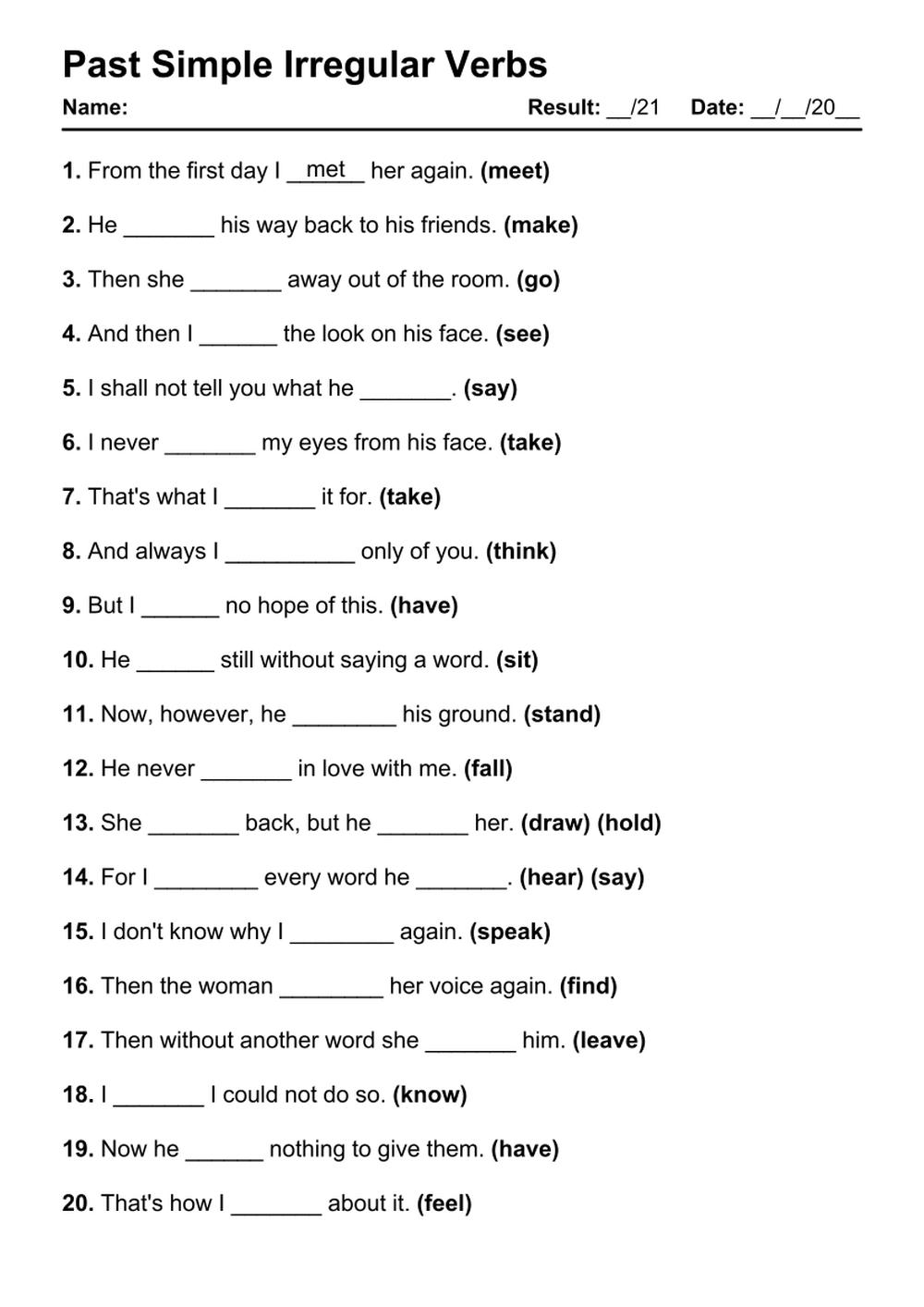Printable Past Simple Irregular Exercises - 101 PDF Worksheets with Answers





































































































Past Simple Tense With Irregular Verbs Printable PDF Worksheet Tests with Exercises and Answers
Access a collection of 101 printable PDF worksheets focusing on the English grammar topic of the past simple irregular. Download fill-in-the-blank tests with exercises and answer keys for past simple tense with irregular verbs to print for free. The activities in the sheets are suitable for kids, adults, ESL learners at the beginner, elementary, and intermediate levels to practice English grammar.

 Bundle
Bundle Worksheet
Worksheet
 Save
Save